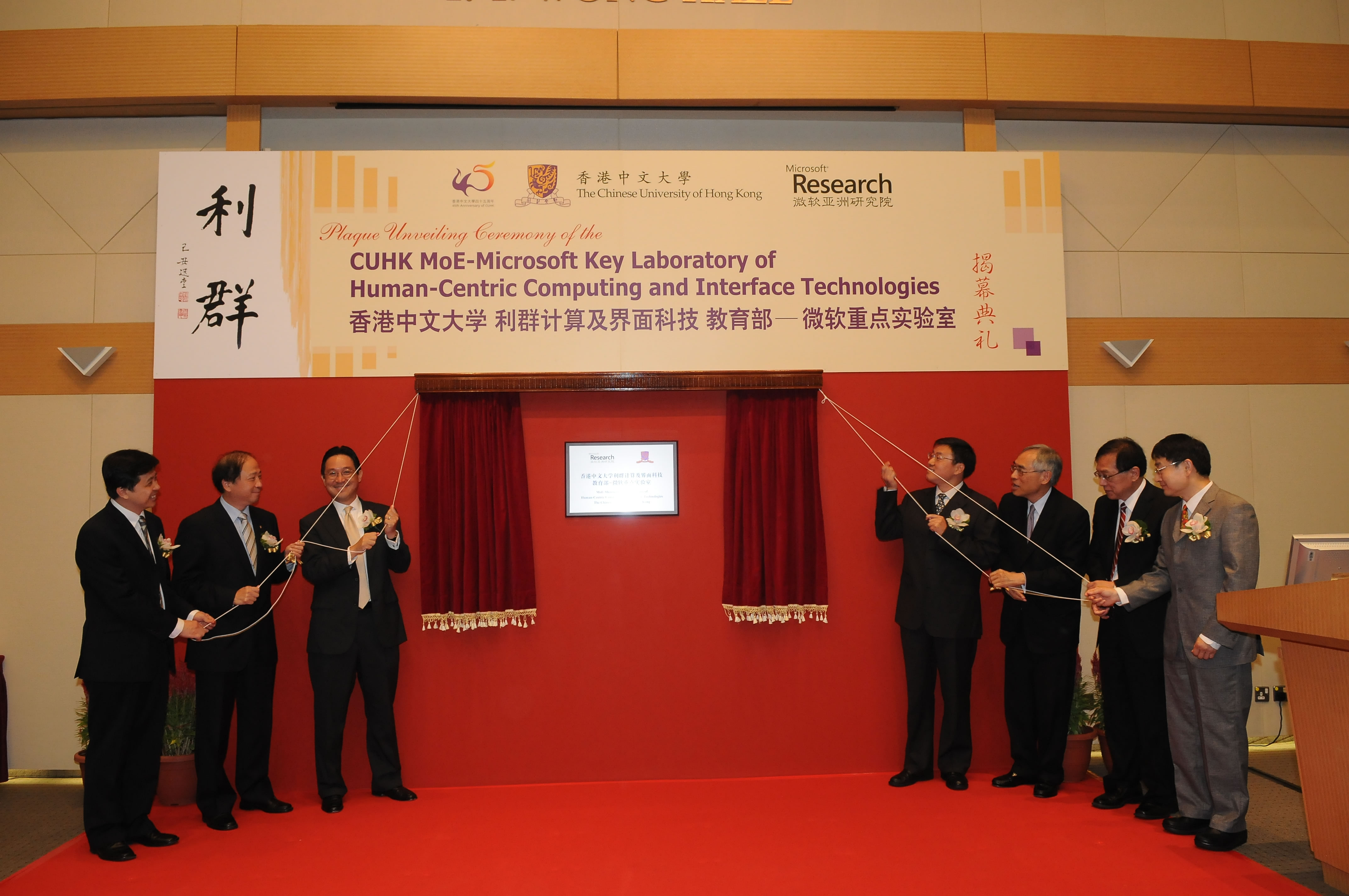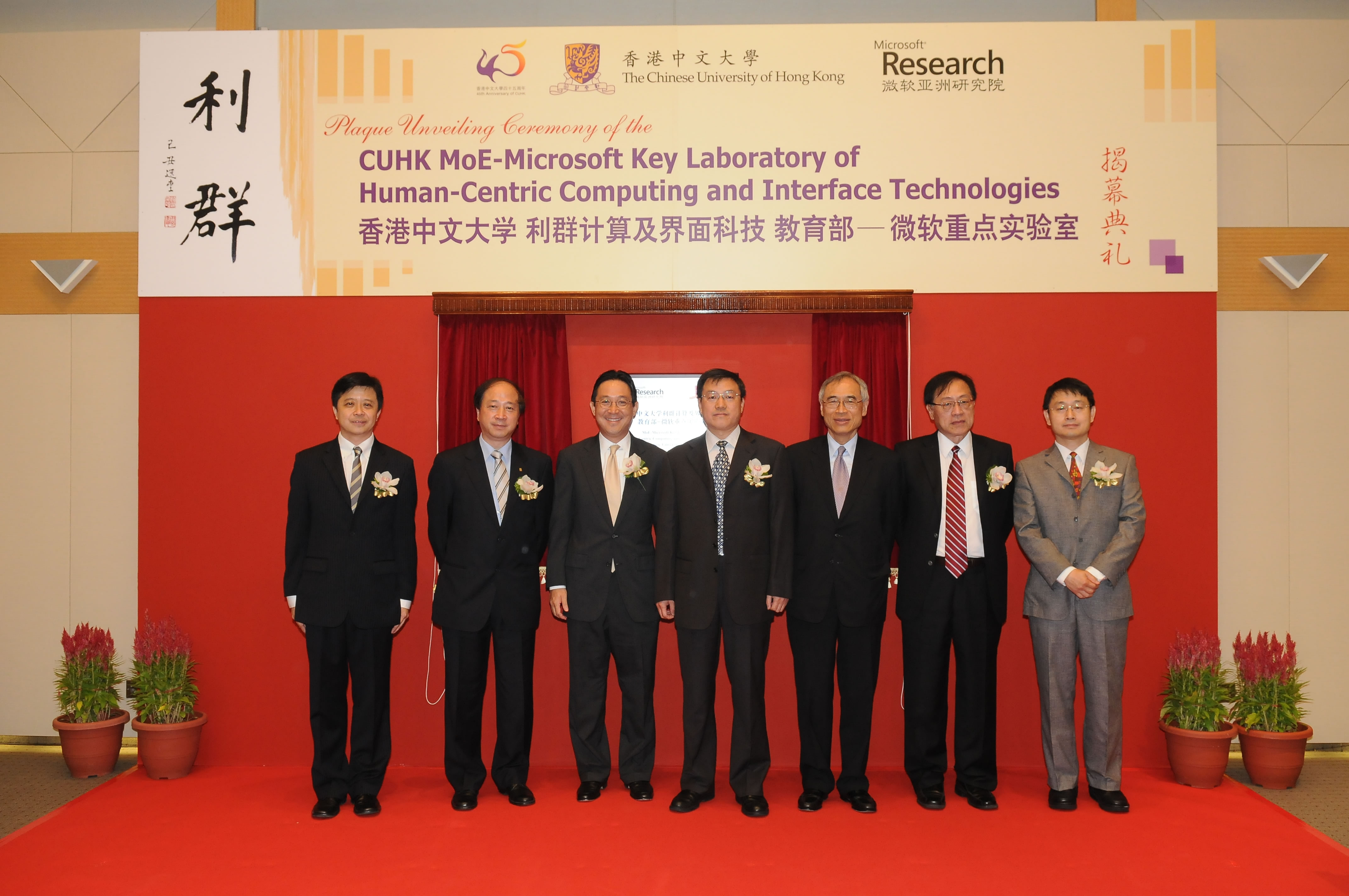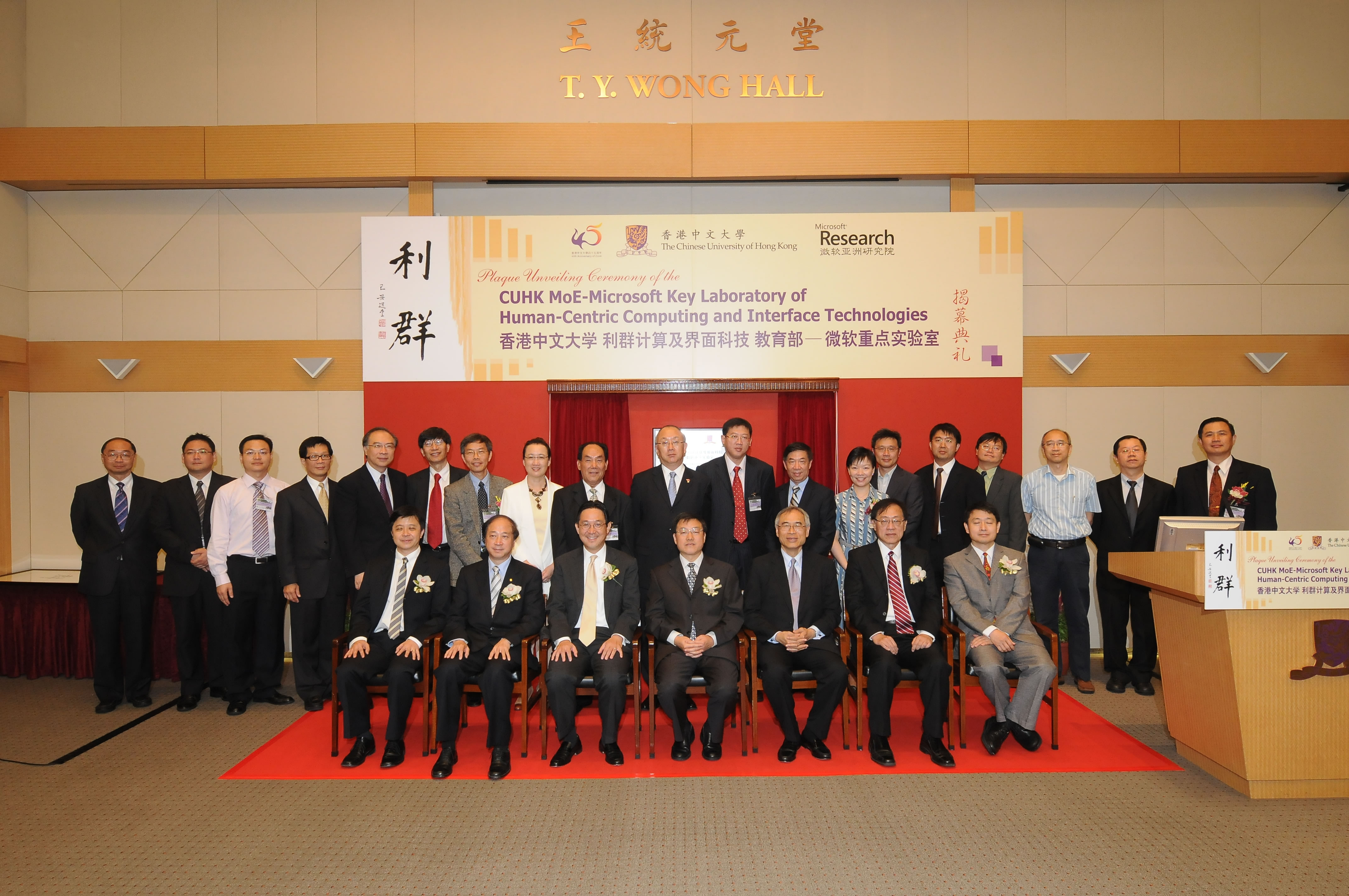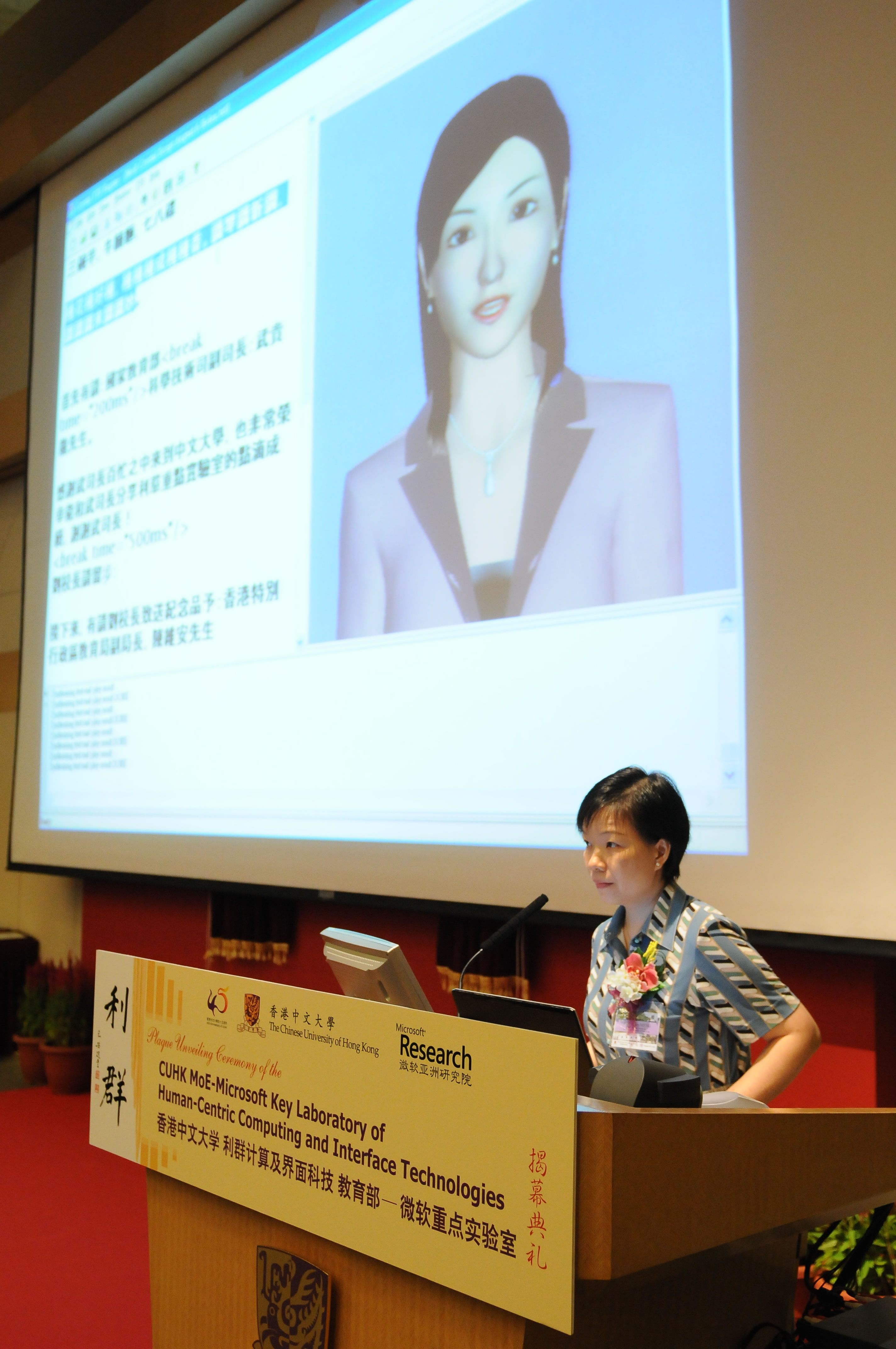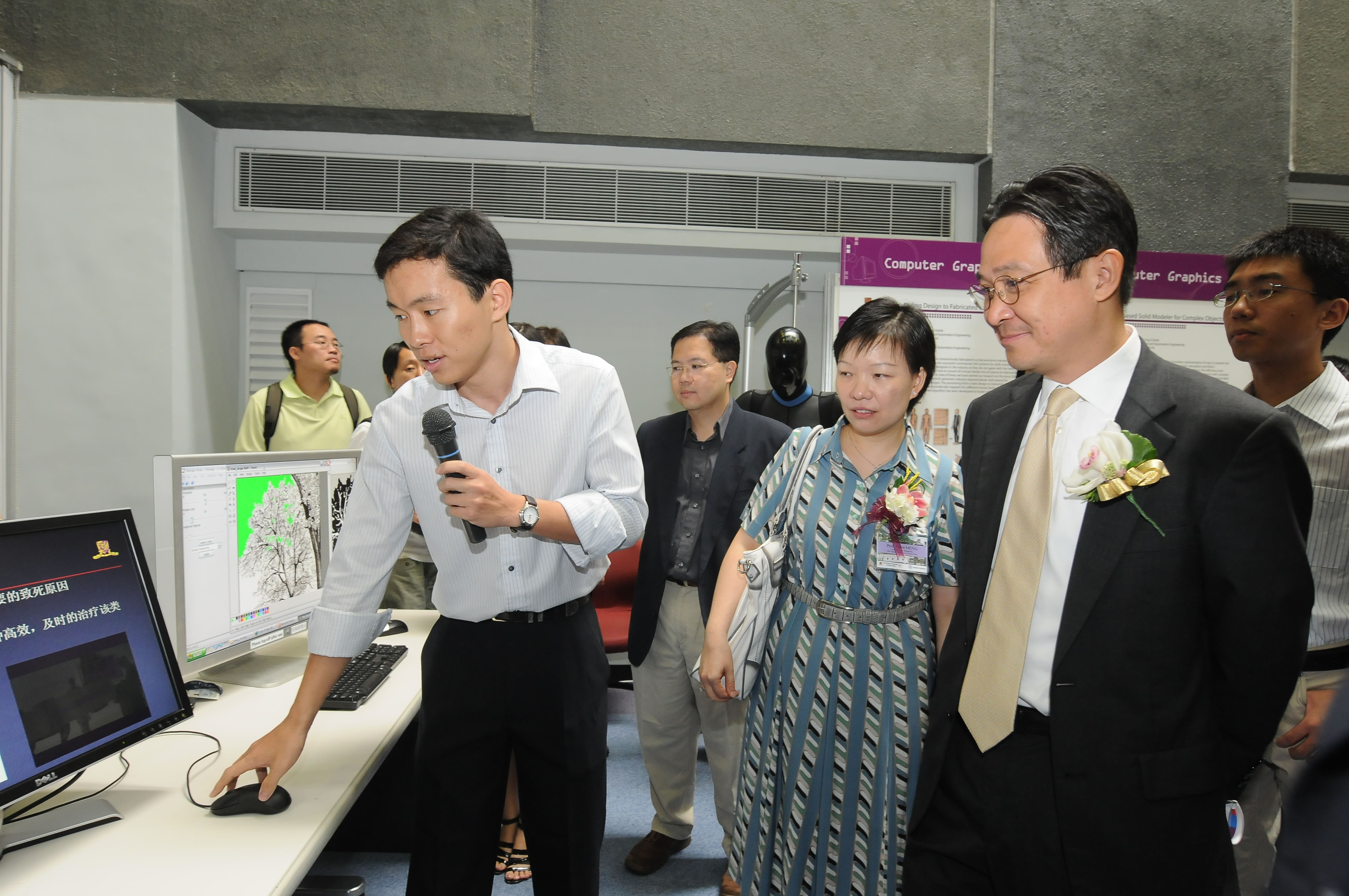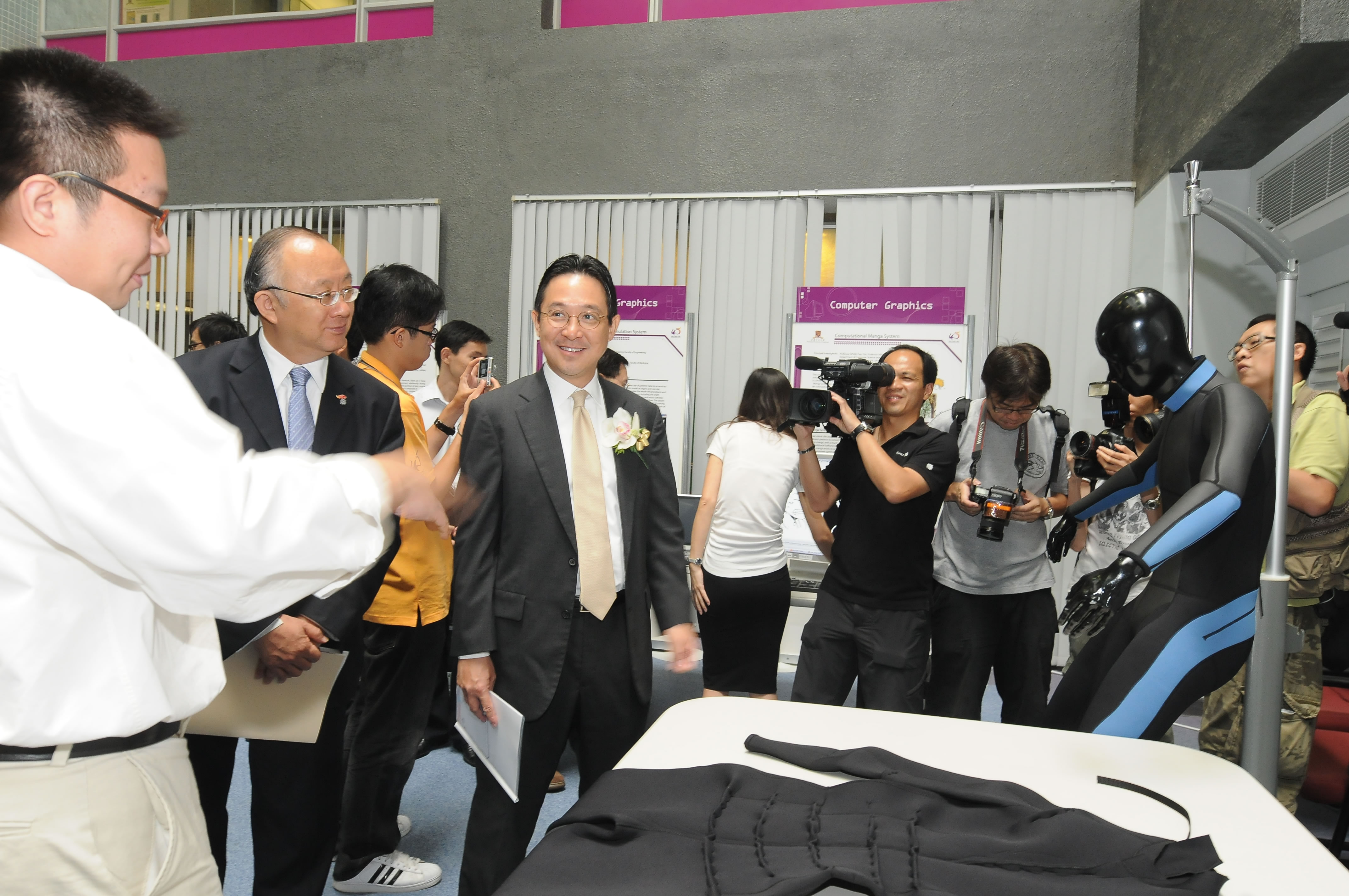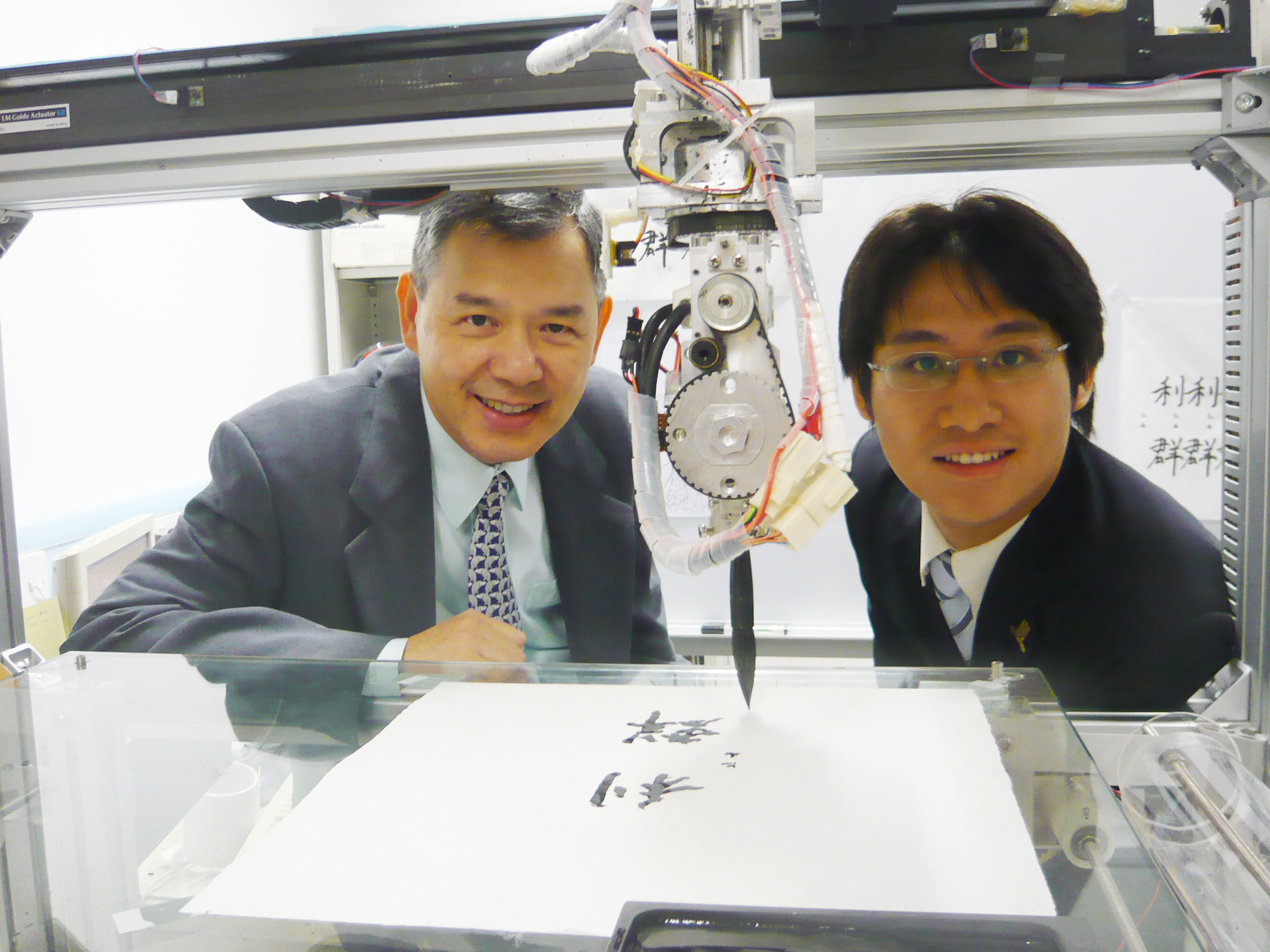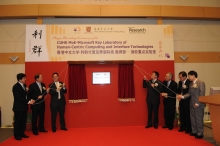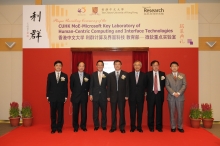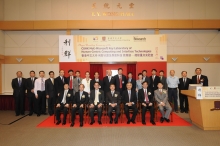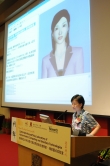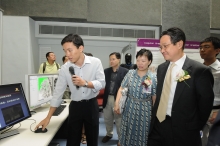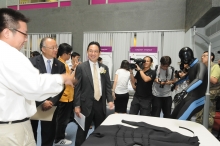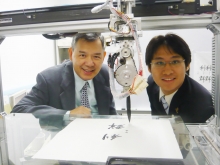CUHK
News Centre
CUHK Ministry of Education – Microsoft Key Laboratory Sets New Milestones for Human-Centric Computing and Interface Technologies
The plaque unveiling ceremony for the CUHK MoE – Microsoft Key Laboratory of Human-Centric Computing and Interface Technologies (Key Laboratory) was held today (7 August) at The Chinese University of Hong Kong (CUHK). The officiating guests were Professor Lawrence J. Lau, CUHK Vice-Chancellor; Mr Wu Guilong, Deputy Director-General, Science and Technology Department, Ministry of Education (MoE); Mr Kenneth Chen Wei On, Under Secretary for Education, Education Bureau, HKSAR Government; Mr Pan Yonghua, Director General of Education, Science and Technology Department of the Liaison Office of the Central People's Government in the HKSAR; Professor Andrew Yao Chi Chih, Distinguished Professor-at-Large, CUHK and Chairman, International Advisory Board, Key Laboratory; Dr Hsiao-Wuen Hon, Managing Director, Microsoft Research Asia and Co-Managing Director, Key Laboratory; and Professor Peter Yum Tak Shing, Dean of Engineering, CUHK and Co-Managing Director, Key Laboratory.
Since its establishment in 2005, the CUHK-Microsoft Joint Laboratory has dedicated its efforts to the improvement of human-centric computing and interface technologies with a view to enhancing quality of life. The Joint Laboratory also strives to promote collaboration between academia and the IT industry, and to nurture talent. In recognition of its abundant scientific and research achievements, the Joint Laboratory was conferred national status by the MoE last year.
CUHK Vice-Chancellor Professor Lawrence J. Lau was pleased with MoE’s recognition, ‘With the conferment of national status, the Joint Laboratory is now a key laboratory under the management of the Ministry of Education. This reflects not only the state’s recognition of our research efforts, but also the University’s success in pioneering advancement in information technology.’
Professor Helen Meng, Associate Dean of Research, Faculty of Engineering, CUHK and Co-Director, Key Laboratory explained, ‘With a research focus on human-computer interface, the Key Laboratory strives to develop human-centric computing and interface technologies by imitating the natural modalities of human communication, in particular how humans create, convey and consume information, enabling computers to be more user-friendly, accessible and applicable to people’s daily lives.’ The laboratory focuses on five major areas, namely computer vision, computer graphics, speech and multimodal processing, multimedia processing and retrieval, and communication and networks. The novel technologies endow computers with perceptual abilities, such as senses of sight, hearing and touch, as well as expressive abilities, such as the ability to speak and to gesture. Audiovisual, multi-view visualizations of data can also be generated to assist people in information mining and knowledge extraction.
Mr Wu Guilong of MoE congratulated CUHK and Microsoft Research Asia on the establishment of the Key Laboratory. He said, ‘MoE Key Laboratories have been playing a critical role in cultivating innovation in higher education, enhancing the quality of universities, fostering developments in technological innovation, the service sector and regional economy, and supporting scientific and IT research. With the establishment of the CUHK-Microsoft Key Laboratory, not only the University will be largely benefited, academic exchanges and cooperation between the higher education sector of the mainland and Hong Kong will also be further encouraged. As China enters the era of information, I believe the Key Laboratory can greatly contribute to the development of information technology of our country, as well as fostering international research in the field.’
Dr Hsiao-Wuen Hon, Managing Director, Microsoft Research Asia, remarked, ‘Collaborating with academia is part of Microsoft Research’s DNA. By combining Microsoft’s vast industry expertise and resources together with academia, we are helping to drive important advances in computer science and talent development. At the CUHK-Microsoft Joint Laboratory, researchers and academics are working together to make human-computer interactions more natural and pleasant.’
The Key Laboratory enjoys high research standing in the international arena. It has published a number of prestigious award-winning papers in international academic conferences and journals. It has secured a total of ten research grants from the highly competitive Microsoft Research Asia Regional Funding Programme. Six outstanding PhD students at CUHK have been elected as Microsoft Research Fellows. Besides receiving a scholarship, they will have the opportunity to intern at Microsoft Research Asia where they can learn cutting edge technologies.
On the front of academic exchange and cooperation, the Key Laboratory arranges frequent visits between CUHK and Microsoft scientists, and distinguished lectures by world-renowned scholars are regularly conducted. The First Microsoft Joint Laboratory Symposium was hosted by the Key Laboratory in 2006 to facilitate exchange among scientists from various Microsoft Joint Laboratories. It has also established cross-region collaborations and partnerships with scientific institutions and major universities to promote knowledge exchange. One such scheme is the internship programme jointly organized with the Indian Institute of Technology.
On the nurturing of talent, a number of CUHK postgraduate students are sent to Microsoft Research Asia to take part in different research projects annually. Strongly supported by the MoE, the annual Beijing-Hong Kong International Doctoral Forum, hosted by the Key Laboratory and Tsinghua University, has since 2006 fostered experience sharing among top PhD students from different countries and promoted opportunities for collaboration. The opening ceremony of the 4th Forum was held today at CUHK, drawing over 20 specialists from the MoE, Microsoft Research Asia, Tokyo University, Tsinghua University and CUHK to meet with more than a hundred of top PhD students from around the world. Professor Andrew Yao, the first Asian Turing Award winner, and Dr Hsiao-Wuen Hon delivered keynote speeches respectively on ‘Nurturing Science Talents in China’ and ‘The Importance of Innovation and IT during Difficult Times’.
About Microsoft Research
Founded in 1991, Microsoft Research is dedicated to conducting both basic and applied research in computer science and software engineering. Its goals are to enhance the user experience in computing devices, reduce the cost of writing and maintaining software, and invent novel computing technologies. Microsoft Research employs more than 700 people in six labs on three continents, focusing on more than 55 areas of computing. Researchers collaborate with leading academic, government, and industry researchers to advance the state of the art in such areas as graphics, speech recognition, user-interface research, natural language processing, programming tools and methodologies, operating systems and networking, and the mathematical sciences. For more information about Microsoft Research, please refer to: http://research.microsoft.com/en-us/labs/asia/.
CUHK Faculty of Engineering
Founded in 1963, CUHK is a forward looking comprehensive research university. CUHK currently has an enrolment of some 20,000 undergraduate and postgraduate students. The Faculty of Engineering, established in 1991, is one of the University's eight faculties. It offers many undergraduate and postgraduate programmes through its five departments: Computer Science and Engineering, Electronic Engineering, Information Engineering, Mechanical and Automation Engineering, and Systems Engineering and Engineering Management. The Faculty of Engineering has world-class teaching staff coming from prestigious universities possessing extensive teaching experience and outstanding research track records. It is also equipped with state-of-the-art facilities to support teaching and research activities. The Faculty’s mission is to train future leaders in engineering, to pursue knowledge at the frontier of modern technology, and to apply advanced technology to meet societal and human needs. For more information about CUHK Faculty of Engineering, please refer to: http://www.cuhk.edu.hk/v6/en/faculties/engineering.html.
The plaque unveiling ceremony for the CUHK MoE - Microsoft Key Laboratory of Human-Centric Computing and Interface Technologies
From left: Dr Hsiao-Wuen Hon, Managing Director, Microsoft Research Asia and Co-Managing Director, Key Laboratory; Mr Pan Yonghua, Director General of Education, Science and Technology Department of the Liaison Office of the Central People's Government in the HKSAR; Mr Kenneth Chen Wei On, Under Secretary for Education, Education Bureau, HKSAR Government; Mr Wu Guilong, Deputy Director-General, Science and Technology Department, MoE; Professor Lawrence J. Lau, CUHK Vice-Chancellor; Professor Andrew Yao Chi Chih, Distinguished Professor-at-Large, CUHK and Chairman, International Advisory Board, Key Laboratory; Professor Peter Yum Tak Shing, Dean of Engineering, CUHK and Co-Managing Director, Key Laboratory
Professor Helen Meng, Associate Dean of Research, Faculty of Engineering, CUHK and Co-Director, Key Laboratory introducing various research projects of the Key Laboratory
Officiating guests attending the exhibition showcasing the Key Laboratory’s technological inventions


